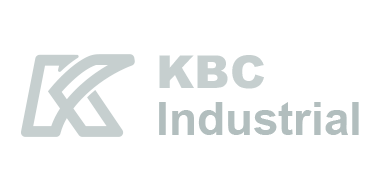What is a POS System?
A Point of Sale (POS) system refers to the combination of hardware and software used by businesses to complete sales transactions. While it typically involves a cash register, barcode scanner, receipt printer, and cash drawer, modern POS systems are much more than just tools for processing payments. Today's POS systems integrate various business functions, such as inventory management, sales tracking, customer relationship management (CRM), and detailed reporting
For small businesses, adopting a POS system means transitioning from manual methods to a digital, automated approach that enhances accuracy, saves time, and improves decision-making
1. Streamlined Transactions
The most basic function of a POS system is to complete sales transactions. For small businesses, POS software allows employees to process payments quickly and efficiently, reducing the time spent on checkout. By simply scanning items, the POS system automatically calculates the total cost and processes payment via cash, credit cards, mobile payments, or other payment methods.
In the past, small business owners may have used a cash register or manual methods to record sales, which was time-consuming and prone to human error. POS systems eliminate these issues, ensuring accuracy and speed, which leads to better customer satisfaction and increased transaction volume.
Key Advantages
- Faster Transactions: With an intuitive interface and easy payment processing, transactions are completed in less time, improving customer service and reducing wait times.
- Multiple Payment Methods: Modern POS systems support various payment methods, including credit and debit cards, mobile payments, and even contactless payments. This gives customers more options, enhancing convenience and customer experience.
2. Real-Time Inventory Management
One of the most powerful features of POS systems is real-time inventory tracking. As sales transactions occur, the POS system automatically updates inventory levels. This allows small business owners to have a constant, up-to-date view of their stock levels, ensuring they never run out of popular products or overstock on items that aren’t selling.
Manual inventory management can be time-consuming and error-prone. POS software eliminates the need for manual stocktaking by automatically updating inventory when a sale is made. This improves accuracy and helps small businesses avoid the costly consequences of stockouts or overstocking.
Key Advantages
- Automatic Stock Updates: Inventory is updated immediately after a sale, reducing the likelihood of human error and discrepancies.
- Low Stock Alerts: Many POS systems come with alerts that notify business owners when it’s time to reorder, preventing stockouts and missed sales opportunities.
- Improved Stock Control: By tracking inventory levels in real-time, businesses can optimize their stock management, avoiding excessive or insufficient stock.
3. Detailed Sales Reporting
POS systems offer detailed and customizable sales reporting features that provide valuable insights into a business’s performance. Small businesses can easily access reports on daily, weekly, or monthly sales, which include information such as the most popular products, average transaction value, sales trends, and more.
These reports allow business owners to make informed decisions about their operations. Whether it’s adjusting product pricing, launching promotional campaigns, or optimizing inventory management, POS software ensures that businesses have access to the data needed to improve performance.
Key Advantages
- Easy Access to Reports: POS systems generate real-time reports that can be accessed anytime, helping business owners monitor sales without manual tracking.
- Identify Best-Selling Products: The system can provide data on which products are selling the most, allowing small business owners to focus their efforts on promoting high-demand items.
- Analyze Sales Trends: POS reports provide insights into sales trends, helping business owners forecast demand, adjust inventory, and plan promotions effectively.
4. Enhanced Customer Experience
POS systems play a significant role in improving the customer experience. By speeding up the checkout process and ensuring accurate transactions, customers enjoy a smoother, more efficient shopping experience. But the benefits don’t stop there—many POS systems come with customer management features, allowing businesses to store customer information and track purchasing behaviors.
For small businesses, this means that customer preferences can be easily monitored, and businesses can offer personalized experiences such as loyalty programs, discounts, and tailored promotions.
Key Advantages
- Faster Checkout Process: A quick and smooth checkout process leads to happier customers who are more likely to return.
- Customer Loyalty Programs: Many POS systems allow businesses to integrate loyalty programs that reward customers for repeat purchases, improving customer retention.
- Personalized Recommendations: By tracking purchase history, businesses can offer personalized product recommendations, creating a more tailored shopping experience.
5. Employee Management and Tracking
POS systems also help small businesses manage their employees more efficiently. Most modern POS software includes features that track employee performance, such as sales per employee, hours worked, and even the number of transactions completed.
Small business owners can easily monitor employee productivity, ensuring that everyone is performing at their best. Additionally, some POS systems allow employees to log in with unique user credentials, enabling businesses to track who completed specific sales or transactions.
Key Advantages
- Employee Performance Monitoring: Business owners can track employee performance through POS reports, identifying high performers and areas for improvement.
- Attendance Tracking: Some POS systems include time clock features, making it easy to track employee hours worked.
- Payroll Integration: Many POS systems integrate with payroll systems, simplifying employee compensation management.
6. Simplified Accounting and Bookkeeping
Accounting can be a headache for small business owners, but a POS system makes it easier by providing real-time financial data and reports. With POS software, all sales data is automatically recorded, making it easier to manage your books and generate financial reports.
Many POS systems integrate with accounting software like QuickBooks, allowing business owners to sync sales, taxes, and expenses directly into their accounting systems. This reduces the risk of errors and the amount of time spent on manual bookkeeping.
Key Advantages
- Automatic Financial Reporting: POS systems generate financial reports like profit and loss statements, tax summaries, and more.
- Tax Calculation: Sales tax is automatically calculated based on the product sold and location, ensuring compliance with tax regulations.
- Easy Integration with Accounting Software: Seamless integration with accounting tools reduces the time and effort needed for bookkeeping.
7. Scalability for Growth
As small businesses grow, their operational needs become more complex. One of the greatest benefits of POS systems is scalability. Whether you're expanding to multiple locations, offering new products, or growing your staff, a POS system can grow with your business.
Cloud-based POS systems, in particular, offer the flexibility to scale your operations without the need for extensive hardware upgrades. Adding new locations or expanding your product offerings is as simple as adjusting settings in the software, making it easier for small businesses to scale efficiently.
Key Advantages
- Easy Expansion: Adding new locations or products doesn’t require significant changes to your existing system.
- Cloud-Based Flexibility: Cloud-based POS systems allow business owners to access their data from anywhere, making remote management possible as the business grows.
- Seamless Integration: New POS features can be easily added as needed, without disrupting your current operations.
8. Improved Security
POS systems offer enhanced security features that protect both businesses and their customers. Traditional cash registers and manual systems are vulnerable to theft and fraud, but POS software comes with built-in security measures like encrypted transactions, user permissions, and secure login protocols.
For small businesses, security is a top concern, especially when handling sensitive customer information like credit card details. A modern POS system ensures that data is protected, reducing the risk of breaches and increasing customer trust.
Key Advantages
- Data Encryption: Sensitive payment information is encrypted, ensuring that transactions are secure.
- User Permissions: Business owners can set user permissions, limiting access to certain functions based on employee roles.
- Fraud Prevention: POS systems help identify and prevent fraudulent transactions, protecting your business and your customers.
9. Integration with Online Sales Platforms
Many small businesses are now selling products both in-store and online. Integrating your POS system with an online store, such as an e-commerce website or marketplace, allows you to streamline inventory management, sales, and order fulfillment.
By syncing your physical and online stores, you ensure consistency across both channels, reducing errors and saving time when updating inventory, processing orders, and handling customer data.
Key Advantages
- Unified Inventory Management: Sync inventory across both physical and online stores to prevent overselling.
- Consistent Customer Data: Consolidate customer data from both channels to create a unified profile for each customer.
- Efficient Order Fulfillment: Integration makes it easier to manage and fulfill online orders alongside in-store transactions.
Conclusion
In conclusion, the benefits of using POS systems for small businesses are numerous and far-reaching. From streamlining transactions and enhancing inventory management to providing valuable sales insights and improving customer experiences, POS systems are essential tools for modern businesses. They not only save time and reduce errors but also empower business owners with data-driven insights that help them make better decisions and scale their operations.
For small businesses looking to stay competitive, investing in a POS system is not just a smart choice—it’s a necessity for growth and long-term success.















